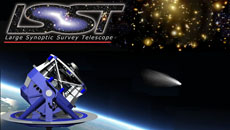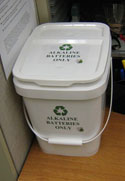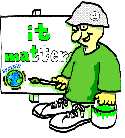|
Monday, July 14
PARTICLE ASTROPHYSICS SEMINARS WILL RESUME IN THE FALL
3:30 p.m.
DIRECTOR'S COFFEE BREAK - 2nd Flr X-Over
4 p.m.
All Experimenters' Meeting - Curia II
Special Topic: Picosecond-Resolution Time-of-Flight Detectors
Tuesday, July 15
Noon
Summer Lecture Seminar - One West
Speaker: P. Oddone, Fermilab
Title: Future of Fermilab
3:30 p.m.
DIRECTOR'S COFFEE BREAK - 2nd Flr X-Over
THERE WILL BE NO ACCELERATOR PHYSICS AND TECHNOLOGY SEMINAR TODAY
Click here for NALCAL,
a weekly calendar with links to additional information. |
|
Monday, July 14
- French Quarter gumbo
- French dip w/horseradish cream sauce
- Smart cuisine: Santa Fe pork stew
- Smart cuisine: honey mustard chicken
- Spicy hot Greek wrap
- Assorted slice pizza
- Sweet n' sour chicken w/egg roll
Wilson Hall Cafe Menu |
|
Wednesday, July 16
Lunch
- Catfish filet veracruz
- Lemon rice
- Corn & red pepper
- Chocolate pecan bourbon tart
Thursday, July 17
Dinner
- Closed
Chez Leon Menu
Call x4598 to make your reservation. |
|
|
Science collaboration opportunities with the Large Synoptic Survey Telescope

LSST Homepage background image. (Image credit: LSST Corporation, Bryn Feldman)
The Large Synoptic Survey Telescope is inviting members from the U.S. astronomy and physics communities to take part in shaping the science for the LSST through membership in LSST science collaborations.
Over the course of 10 years, the LSST will perform a six-wavelength, multi-epoch, visible-light survey of half the celestial sphere. The Survey will provide major leaps for studies of dark energy and dark matter via studies of gravitational lensing, distant supernovae and the large-scale distribution of galaxies. The LSST will cover the sky with an unprecedented combination of speed and depth. The Particle Physics Project Prioritization Panel (P5), which recently developed a long-range plan for particle physics in the U.S., explicitly endorsed the continued construction of the LSST under all funding scenarios. The present plan is for LSST "first light" in 2014. More information about LSST and its science goals can be found online here and here.
The Science Collaborations are opening their membership to the U.S. science community to help develop and document the science opportunities provided by the LSST, finalize the design of the system and observing strategy, undertake end-to-end simulations, commission instrument and data management systems, and develop and ultimately perform science analyses. International participation is being organized separately. These collaborations are intended to work closely with the LSST construction project, although they are autonomous ventures.
Those who wish to join one or more of these collaborations are asked to submit proposals for review by the science collaboration leadership and an independent panel of astronomers and physicists. Further details and information on applying for membership are available online.
The application deadline is August 29.
|
Even in manicured suburbs, butterflies find their spots
From Daily Herald Column, July 9, 2008
Editor's Note: This column features Tom Peterson, Fermilab's resident butterfly expert.
As a kid, I once tied a mesh potato sack to a yardstick and stumbled around our yard with dreams of bagging a butterfly.
"I use a real butterfly net, but it's not altogether different from what you describe," admits Doug Taron, curator of biology at Chicago's Peggy Notebaert Nature Museum and director of the Illinois Butterfly Monitoring Network. "I've been doing this since I was 7, but I'm usually reluctant to be out in the field with people like you watching me."
...One suburban butterfly haven is the Nelson Lake Marsh in the Dick Young Forest Preserve west of Batavia, says Tom Peterson, a 57-year-old Fermilab mechanical engineer from St. Charles who serves as the volunteer coordinator for the Illinois Butterfly Monitoring Network.
"I've seen quite a few wetland butterflies," says Peterson. "I've seen a lot of (the rare) Baltimore Checkerspot in the marsh, maybe even more than average."
During lunch and after work at Fermilab, Peterson has spotted and photographed dozens of butterflies -- from Meadow Fritillaries to Hairstreaks.
"There are a lot of butterflies at Fermilab," Peterson says.
Read more
|
|
|
Recycle alkaline batteries
 |
| Recycle alkaline batteries in any of 75 collection pails. |
Fermilab staff, users and students utilize about 30,000 alkaline batteries per year. The popularity of alkaline batteries stems from their relatively high-energy density, long shelf life, relatively low cost and low environmental impact.
But what happens when these batteries no longer have a charge? Although alkaline batteries are not hazardous, they can be corrosive when they degrade. Since most batteries end up in landfills, this can cause large problems. Batteries can also pose a safety hazard when improperly used. Improper use of batteries, such as using damaged batteries, can result in chemical burns.
To help reduce battery waste, Fermilab has a battery recycling program. Fermilab employees and users can deposit batteries used at Fermilab in any of 75 collection pails placed around the site. To recycle 9-volt batteries, please place tape over the contacts.
 |
| Seymour Green, the ES&H mascot, promotes recycling |
Divisions, sections and centers are responsible for transporting collected batteries to the Property Group at Warehouse 2, which serves as the collection point prior to offsite transport for recycling. Each division, section or center must complete a Material Move Request, designate the battery weight and deliver the batteries to Warehouse 2 between 7 a.m. and 3:30 p.m. If you have questions concerning battery recycling, please contact your organization's environmental officer. Additional guidance on battery recycling can be found here.
|
|
Have a safe day!
Fermilab pool memberships now available at Recreation Office
Fermilab employees and users can now enjoy the Fermilab pool. The pool opened last week and is hosting swimming lessons for both youth and pre-schoolers. Registration for the second (July 21-Aug 1) and third (Aug 4-15) sessions is still open. Swim lesson registration and pool memberships are now available through the Recreation Office (x5427) on WH15.
Fermilab Housing Office reservation requests due Monday
Reservation requests can now be made to the Fermilab Housing Office for houses, apartments and dormitory rooms for the remainder of 2008 and spring of 2009. Since there will be a large influx of experimenters and requests may exceed our available facilities, please submit your request for reservations to the Housing Office by Monday, July 14. Requests can be made for any period and need not commence on any particular date. For further information, please contact the Housing Office at (630) 840-3777 or via e-mail. Individual housing requests can be made by using our online housing request form. Requests for multiple housing units are best handled by direct e-mail.
Tango lessons
Beginning July 23, International Folk Dancing and NALWO will start a new group and offer tango lessons by experienced tango dancers from Chicago. The lessons will take place in Ramsey Auditorium on Wednesdays from 7:30 to 8:30 p.m. for beginners and 8:30 to 9:30 p.m. for intermediate/advanced level. To sign up call Pamela Noyes at (630) 840-5779 or e-mail her.
Accelerated C++ Short Course
On August 4, Fermilab will offer the first session of Accelerated C++: A
Short Course in Practical Programming by Example.
The eight-session course teaches computer programming in modern standard
C++. Participants receive TRAIN credit upon successful completion of the
course. No tuition is charged; the only cost is for the required textbooks.
A subsidy is available for most students.
Walter Brown, who participates on Fermilab's behalf in the international C++
standardization effort, is the course instructor. Register here.
Additional Activities |
|